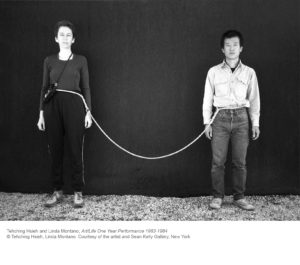15th March 2021, online
‘Writing into the future: letters as containers of time and care’ with Laura Salisbury.
Forms of Care: an interdisciplinary workshop exploring care and its forms at the intersection of ethics, affect, and aesthetics.
“As I was driving home one flashlight view showed me the earth after two or three generations”, wrote Olga Jacoby, terminally ill, to her doctor in 1910. In Words in Pain, the collection of Jacoby’s letters published anonymously by her widower in 1919, Jacoby’s determination to articulate her Rationalist vision, to “die with my fountain pen in my hand”, and to create a legacy for her young children, sit alongside her agonising observations of her deterioration from a terminal heart condition. Three hundred years after early modern women writers found in the posthumous mother’s advice genre not only a form for their care but also a mode of entry into publication, Jacoby’s one-sided correspondence explores her fantasies of what her children may be able to remember of her and how care might persist over time. In this epistolary paper, we explore the containment offered by the letter and its simultaneous status as a form of self-care and mourning by the writer, and a projection of care into the future: the future of her descendants and the unfolding social history of the twentieth century.
‘Adolescent time and waiting with risk in psychoanalytic psychotherapy’: contribution to joint presentation by the Waiting Times group
In this contribution, I shall be exploring notions of time and waiting in relation to psychoanalytic psychotherapy with young people, considering both adolescent time in general and the shadow of suicide in particular. In so doing, I shall examine the various anticipatory anxieties attendant upon working with such young people, with which therapists and the young people themselves must do battle.
‘Compassion, Sadism, Words and Song: Development and breakdown in the intensive psychotherapy of an adopted boy’
Paper is given as a contribution to a joint presentation by the Waiting Times group.
New York Psychoanalytic Institute, New York, 22 October 2019
‘Waiting for Psychoanalysis’ invites three researchers who form part of a 5-year research project on what it means to wait in and for healthcare to reflect on how psychoanalysis helps us to understand the difficulties and potentialities of waiting within contemporary lives that are increasingly experienced as frenetic, harried and time-starved, while also, paradoxically, impeded and stuck. Psychoanalysis is a practice that takes and uses time self-consciously, working and thinking through rhythms that run counter to the values of immediacy, productivity and efficiency that orientate many of our experiences of contemporary life. By committing to the long timeline of psychoanalysis, the patient is brought into contact with something different: a demand for patience, for suffering and endurance in which processes of mourning, or the emergence and working through of traumatic memory, cannot be sped up but must be endured through time and ameliorated through a practice of endurance on the part of both patient and analyst. This discussion will invite academic researchers who also work clinically with patients in three different psychoanalytically-informed traditions to reflect on how psychoanalytic modes of care function through practices of waiting with – through the suspension of the everyday, the repetitions of the transference and processes of working through. They will discuss what this particular use of time might have to offer a social world in which, at one level, waiting seems increasingly devalued or intolerable, while at another the promises of a progressive future seem to be slipping from view – where all one can do it wait.
‘Adolescent time and waiting in time-limited psychoanalytic psychotherapy’
Social Life of Time
University of Edinburgh, 5-7 June 2018
Time-limited psychoanalytic psychotherapy has become increasingly prominent in recent years, following the development of the 28-week model, Short-Term Psychoanalytic Psychotherapy, for adolescents with severe depression. This evidenced-based treatment, recently tested in the largest randomised controlled trial of psychoanalytic psychotherapy for adolescents to date, is currently being adopted in CAMHS services in the UK.
Is 28 sessions too much, too little, or enough? While for many psychoanalytic psychotherapists, this hardly seems to scratch the surface, for many adolescents 28 weeks seems like a very long time. What is it for the adolescent to engage in a therapy that will end at a specified point? What is it for the psychotherapist to wait for such a therapy to unfold? Can this be borne – by patient, therapist or family – where the young person’s distress is expressed through dangerous activities such as deliberate self-harm? How is the young person to understand what they are engaging in and what they are waiting for: to feel better? Or to feel that life is worth living?
In this paper, I describe the development of the STPP model, and consider its implications for clinical psychoanalytic work with depression and risk, and in relation to adolescent time.


